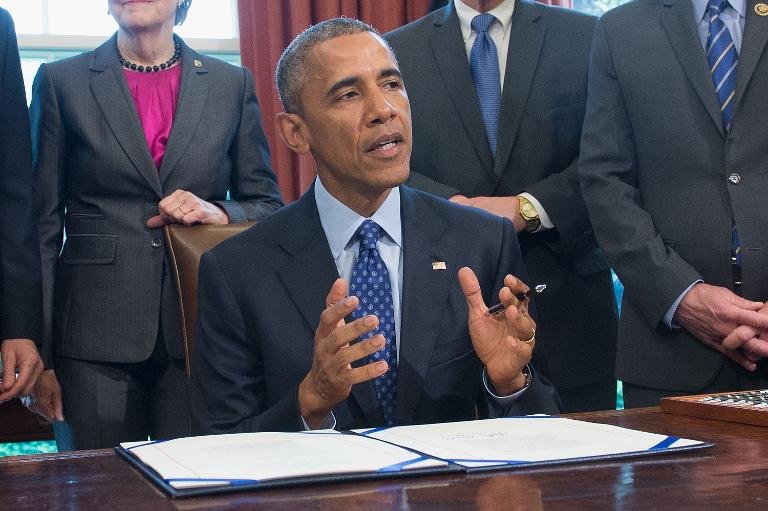President Obama on Tuesday signed into law landmark legislation ending the government’s bulk telephone data dragnet, significantly reversing American policy by reining in the most controversial surveillance program since 9/11.
President Barack Obama on Tuesday signed into law landmark legislation ending the government's bulk telephone data dragnet, significantly reversing American policy by reining in the most controversial surveillance program since 9/11.
The bill was given final passage earlier Tuesday by the US Senate, after being approved by the House several days earlier.
The measure reauthorizes key national security programs that had lapsed early this week.
"Glad the Senate finally passed the USA Freedom Act. It protects civil liberties and our national security," President Barack Obama said on Twitter shortly before he signed it.
In a separate statement earlier, Obama chided lawmakers for the "needless delay and inexcusable lapse in important national security authorities," in the days leading up to the bill's eventual passage.
"My administration will work expeditiously to ensure our national security professionals again have the full set of vital tools they need to continue protecting the country," the American president said.
The bill halts the National Security Agency's ability to scoop up and store metadata -- telephone numbers, dates and times of calls -- from millions of Americans who have no connection to terrorism.
It shifts responsibility for storing the data to telephone companies, allowing authorities to access the information only with a warrant from a secret counter-terror court that identifies a specific person or group of people suspected of terror ties.
The vote follows days of sharp debate on the floor, with many Republicans split over their support for strong counter-terror measures and the need for personal privacy protections in the wake of former NSA contractor Edward Snowden's bombshell revelations about the bulk data dragnet in 2013.
The fugitive Snowden, alternatively seen as a villain by intelligence backers and a hero by supporters of stronger civil liberties, hailed the congressional action as "historic."
Speaking by live video link from Russia at an Amnesty International event in London shortly before the bill was passed, Snowden called efforts to end mass surveillance "not enough" but "an important step."